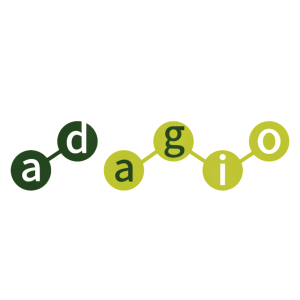Invivyd Announces PEMGARDA™ (pemivibart) Demonstrated 84% Relative Risk Reduction in Symptomatic COVID-19 Compared to Placebo in an Exploratory Analysis from Ongoing CANOPY Phase 3 Clinical Trial
Rhea-AI Summary
Invivyd (Nasdaq: IVVD) announced positive 180-day exploratory clinical efficacy data from its ongoing CANOPY Phase 3 trial of pemivibart, an investigational monoclonal antibody for COVID-19 pre-exposure prophylaxis. In immunocompetent individuals, pemivibart demonstrated an 84% relative risk reduction in symptomatic COVID-19 compared to placebo. The pemivibart group had a 1.9% rate of confirmed symptomatic COVID-19, versus 11.9% in the placebo group. In immunocompromised participants, pemivibart showed a 3% rate of confirmed symptomatic COVID-19. The safety profile remained consistent with previous data. The FDA updated the PEMGARDA Fact Sheet for Healthcare Providers to include these exploratory clinical efficacy data.
Positive
- 84% relative risk reduction in symptomatic COVID-19 for immunocompetent individuals
- 1.9% rate of confirmed symptomatic COVID-19 in pemivibart group vs 11.9% in placebo group
- 3% rate of confirmed symptomatic COVID-19 in immunocompromised participants
- No hospitalizations or deaths due to COVID-19 reported in the trial
- FDA updated PEMGARDA Fact Sheet with new exploratory clinical efficacy data
Negative
- Anaphylaxis observed in 4 participants (0.6%) in Cohort A, leading to permanent discontinuation
- Systemic infusion-related reactions and hypersensitivity reactions observed in 8.2% and 3.9% of Cohort A participants after initial dose and redose
News Market Reaction
On the day this news was published, IVVD declined 28.67%, reflecting a significant negative market reaction.
Data tracked by StockTitan Argus on the day of publication.
- In all-comer cohort of immunocompetent individuals at risk of contracting symptomatic COVID-19 in their everyday social interactions, participants receiving pemivibart experienced a
1.9% rate of confirmed symptomatic COVID-19 compared to an11.9% rate for participants receiving placebo, an84% relative risk reduction (nominal p= 0.000061) - In immunocompromised participants, pemivibart demonstrated a rate of
3% of confirmed symptomatic COVID-19, an encouraging potential signal of protection during the assessed time period - CANOPY data from planned exploratory clinical efficacy analyses during the 180-day period that included XBB* and JN.1* virus lineages
- Safety profile of pemivibart consistent with previously reported CANOPY clinical trial data
- PEMGARDA (pemivibart) Fact Sheet for Healthcare Providers updated by U.S. Food and Drug Administration (FDA) including exploratory clinical efficacy data
- Conference call today at 8:30AM EDT to discuss CANOPY data analyses
WALTHAM, Mass., Aug. 27, 2024 (GLOBE NEWSWIRE) -- Invivyd, Inc. (Nasdaq: IVVD), a biopharmaceutical company devoted to delivering protection from serious viral infectious diseases, today announced positive 180-day exploratory clinical efficacy data from the company’s ongoing CANOPY Phase 3 clinical trial of pemivibart, a half-life extended investigational monoclonal antibody (mAb), for the pre-exposure prophylaxis (PrEP) of COVID-19.
The exploratory clinical efficacy data in Cohort B, a placebo-controlled cohort of all-comer immunocompetent individuals, showed a relative risk reduction of
Additionally, in Cohort A, the single-arm immunocompromised cohort of the trial, pemivibart demonstrated a
The safety profile of pemivibart in the second half of the assessed 180-day time period remained consistent with previously disclosed CANOPY clinical trial data. In Cohort A, the most common treatment-emergent adverse events (TEAE) were viral infection (
CANOPY clinical trial results provide data from mAb administration in a contemporary population that likely had acquired prior immune exposure from either vaccination or natural infection and overlapped with the height of the September 2023-March 2024 XBB* and JN.1* waves that saw a surge in COVID-19 cases nationwide in the United States. By contrast, ancestral studies of COVID-19 PrEP candidate mAbs were performed in populations naïve to vaccination or prior infection. CANOPY clinical trial participants received two doses of pemivibart (Cohort A and B) or placebo (Cohort B) administered via intravenous (IV) infusion three months apart; safety, serum virus neutralizing antibody (sVNA) titers and clinical endpoints were assessed at pre-specified timepoints over the 180-day period.
The 180-day clinical efficacy exploratory data announced today complements the initial clinical efficacy exploratory data demonstrating potential signals of clinical protection from symptomatic COVID-19 shared previously. The company expects the full data set to be provided in an upcoming scientific publication. The PEMGARDA (pemivibart) Fact Sheet for Healthcare Providers was updated by the U.S. Food and Drug Administration (FDA) including 180-day exploratory clinical efficacy data.
The following table elaborates the principal exploratory clinical efficacy findings based on the full 180-day analyses:
CANOPY Clinical Efficacy Results Over 180 Days
| Cohort B | Pemivibart | Placebo | StandardizedRelative Risk Reduction ( | Nominal p-value |
| Modified Full Analysis Set | ||||
| N | 317 | 160 | ||
| Composite RT-PCR confirmed COVID-19, COVID-19-related Hospitalization, and All-cause Mortality | 6 ( | 19 ( | (60.9, 93.5) | 0.000061 |
| RT-PCR confirmed COVID-19 | 6 | 19 | ||
| COVID-19-related Hospitalization | 0 | 0 | ||
| COVID-19-related Death | 0 | 0 | ||
| All-cause Mortality | 0 | 0 | ||
Based on CANOPY 6-month data cutoff (21May2024). Cohort B Modified Full Analysis Set includes all randomized participants without current SARS-CoV-2 infection at baseline as measured by central lab RT-PCR.
| Cohort A | Pemivibart |
| Full Analysis Set | |
| N | 298 |
| Composite RT-PCR confirmed COVID-19, COVID-19-related Hospitalization, and All-cause Mortality | 11 ( |
| RT-PCR confirmed COVID-19 | 9 ( |
| COVID-19-related Hospitalization | 0 |
| COVID-19-related Death | 0 |
| All-cause Mortality | 2 ( *One death is due to an unknown cause and one due to suicide |
Based on CANOPY 6-month data cutoff (21May2024). Cohort A Full Analysis Set includes all participants who received a full dose of study drug at the initial dosing.
“We are thrilled with the clinically meaningful protection shown by pemivibart in these exploratory analyses during a 180-day period with various SARS-CoV-2 circulating variants,” commented Mark A. Wingertzahn, SVP of Clinical Development and Medical Affairs. “These CANOPY clinical efficacy data provide an important reminder that monoclonal antibodies can provide meaningful protection against COVID-19 when people encounter the virus in indoor settings and unmasked during their everyday lives. Importantly, given the timeframe in which this study was conducted, these CANOPY data suggest that even with a substantial population-level backdrop of immunologic experience with SARS-CoV-2 from either infection or vaccination, additional protection against symptomatic COVID-19 may be available with monoclonal antibodies, including for certain individuals with moderate-to-severe immunocompromise.”
“Invivyd is devoted to delivering protection from serious viral infectious diseases such as SARS-CoV-2. Today’s data align with and fuel our broader goals of innovating new molecules and educating the clinical community on the possibility of strong protection from monoclonal antibodies so that we can scale and democratize access to such medicines,” noted Marc Elia, Chairperson of the Board. “COVID-19 remains an unacceptable medical burden in the U.S. and around the world, and the incremental protection demonstrated by pemivibart in the CANOPY study points the way to the potential for a radically diminished risk of symptomatic disease via antibody prophylaxis. Our mission remains to innovate so that the immunocompromised community and ultimately much broader populations can experience high rates of protection from symptomatic COVID-19.”
“The positive CANOPY clinical efficacy data through 6 months is encouraging and will be helpful to clinicians in making an informed decision about PEMGARDA use in their immunocompromised, at-risk patients, " said Cameron R. Wolfe, M.B.B.S., M.P.H., Professor of Medicine, Transplant Infectious Disease at Duke University School of Medicine. "The risk of COVID-19 for immunocompromised people remains disproportionate and having a mAb in the toolbox for pre-exposure prophylaxis is extremely beneficial.”
About PEMGARDA
PEMGARDA™ (pemivibart) is a half-life extended investigational monoclonal antibody (mAb). PEMGARDA was engineered from adintrevimab, Invivyd’s investigational mAb that has a robust safety data package and provided evidence of clinical efficacy in a global Phase 2/3 clinical trial for the prevention and treatment of COVID-19. PEMGARDA has demonstrated in vitro neutralizing activity against major SARS-CoV-2 variants, including JN.1. PEMGARDA targets the SARS-CoV-2 spike protein receptor binding domain (RBD), thereby inhibiting virus attachment to the human ACE2 receptor on host cells.
PEMGARDA (pemivibart) injection (4500 mg), for intravenous use is an investigational mAb that has not been approved, but has been authorized for emergency use by the U.S. FDA under an EUA for the pre-exposure prophylaxis (prevention) of COVID-19 in adults and adolescents (12 years of age and older weighing at least 40 kg) who have moderate-to-severe immune compromise due to certain medical conditions or receipt of certain immunosuppressive medications or treatments and are unlikely to mount an adequate immune response to COVID-19 vaccination. Recipients should not be currently infected with or have had a known recent exposure to an individual infected with SARS-CoV-2.
PEMGARDA is not authorized for use for treatment of COVID-19 or post-exposure prophylaxis of COVID-19. Anaphylaxis has been observed with PEMGARDA and the PEMGARDA Fact Sheet for Healthcare Providers includes a boxed warning for anaphylaxis. The most common adverse events (all grades, incidence ≥
To support the EUA for PEMGARDA, an immunobridging approach was used to determine if PEMGARDA may be effective for pre-exposure prophylaxis of COVID-19. Immunobridging is based on the serum virus neutralizing titer-efficacy relationships identified with other neutralizing human mAbs against SARS-CoV-2. This includes adintrevimab, the parent mAb of pemivibart, and other mAbs that were previously authorized for EUA. There are limitations of the data supporting the benefits of PEMGARDA. Evidence of clinical efficacy for other neutralizing human mAbs against SARS-CoV-2 was based on different populations and SARS-CoV-2 variants that are no longer circulating. Further, the variability associated with cell-based EC50 value determinations, along with limitations related to pharmacokinetic data and efficacy estimates for the mAbs in prior clinical trials, impact the ability to precisely estimate protective titer ranges. Additionally, certain SARS-CoV-2 viral variants may have substantially reduced susceptibility to PEMGARDA, and PEMGARDA may not be effective at preventing COVID-19 caused by these SARS-CoV-2 viral variants.
The emergency use of PEMGARDA is only authorized for the duration of the declaration that circumstances exist justifying the authorization of the emergency use of drugs and biological products during the COVID-19 pandemic under Section 564(b)(1) of the Federal Food, Drug, and Cosmetic Act, 21 U.S.C. § 360bbb-3(b)(1), unless the declaration is terminated or authorization revoked sooner. PEMGARDA is authorized for use only when the combined national frequency of variants with substantially reduced susceptibility to PEMGARDA is less than or equal to
About CANOPY
The ongoing CANOPY Phase 3 clinical trial is designed to evaluate the safety and tolerability of pemivibart and to assess immunobridging from pemivibart to certain historical data from the company’s previous Phase 2/3 clinical trial of adintrevimab (ADG20) for the prevention of symptomatic COVID-19 (EVADE). Additionally, there are pre-specified exploratory endpoints through three, six and twelve months to evaluate clinical efficacy of pemivibart compared to placebo in the prevention of RT-PCR-confirmed symptomatic COVID-19. The latest analysis from the Phase 3 CANOPY clinical trial includes 180-day data. The CANOPY clinical trial enrolled participants in two cohorts: Cohort A is a single-arm, open-label trial in adults who have moderate-to-severe immune compromise including complex underlying medical conditions. Cohort B is a randomized, placebo-controlled cohort that enrolled adults without moderate-to-severe immune compromise who are at risk of acquiring COVID-19 due to regular unmasked face-to-face interactions in indoor settings.
About Pemivibart (VYD222)
Pemivibart is a half-life extended monoclonal antibody (mAb) candidate being investigated for the pre-exposure prophylaxis (prevention) of COVID-19 and the treatment of mild to moderate symptomatic COVID-19 in certain immunocompromised adults and adolescents. Pemivibart has demonstrated in vitro neutralizing activity in pseudotyped virus-like particle and authentic virus neutralization assays against various pre-Omicron and Omicron variants. Pemivibart was engineered from adintrevimab, Invivyd’s investigational mAb that has a robust safety data package and provided evidence of clinical efficacy in global Phase 2/3 clinical trials for both the prevention and treatment of COVID-19. Pemivibart has not been approved by the U.S. FDA or any other regulatory authority.
About Invivyd
Invivyd, Inc. (Nasdaq: IVVD) is a biopharmaceutical company devoted to delivering protection from serious viral infectious diseases, beginning with SARS-CoV-2. The company’s proprietary INVYMAB™ platform approach combines state-of-the-art viral surveillance and predictive modeling with advanced antibody engineering. INVYMAB is designed to facilitate the rapid, serial generation of new monoclonal antibodies (mAbs) to address evolving viral threats. In March 2024, Invivyd received emergency use authorization (EUA) from the U.S. FDA for its first mAb in a planned series of innovative antibody candidates. Visit https://invivyd.com/ to learn more.
Cautionary Note Regarding Forward Looking Statements
This press release contains forward-looking statements within the meaning of the Private Securities Litigation Reform Act of 1995. Words such as “anticipates,” “believes,” “could,” “expects,” “estimates,” “intends,” “potential,” “projects,” and “future” or similar expressions (as well as other words or expressions referencing future events, conditions or circumstances) are intended to identify forward-looking statements. Forward-looking statements include statements concerning, among other things, the company’s ongoing research and clinical development activities, as well as future potential research and clinical development efforts; the potential of pemivibart for clinical protection from symptomatic COVID-19 based on the 180-day exploratory clinical efficacy data from the CANOPY clinical trial; the potential for mAbs to provide meaningful protection against COVID-19; the company’s goal to scale and democratize access to mAbs; the potential for mAbs to provide additional protection against COVID-19; the company’s goals of innovating new molecules and educating the clinical community on the possibility of strong protection from mAbs; the company’s devotion to delivering protection from serious viral infectious diseases, beginning with SARS-CoV-2; the design of the company’s INVYMAB platform approach to facilitate the rapid, serial generation of new mAbs to address evolving viral threats; the company’s plans for a series of innovative antibody candidates; the company’s expectation to provide full CANOPY clinical trial data in an upcoming scientific publication; the potential of PEMGARDA as a mAb for pre-exposure prophylaxis (prevention) of COVID-19 in adults and adolescents who have moderate-to-severe immune compromise; the ongoing in vitro neutralizing activity of PEMGARDA against major SARS-CoV-2 variants; and other statements that are not historical fact. The company may not actually achieve the plans, intentions or expectations disclosed in the company’s forward-looking statements and you should not place undue reliance on the company’s forward-looking statements. These forward-looking statements involve risks and uncertainties that could cause the company’s actual results to differ materially from the results described in or implied by the forward-looking statements, including, without limitation: the timing and progress of the company’s discovery, preclinical and clinical development activities; the risk that results of nonclinical studies or clinical trials may not be predictive of future results, and interim data are subject to further analysis; unexpected safety or efficacy data observed during preclinical studies or clinical trials; the predictability of clinical success of the company’s product candidates based on neutralizing activity in nonclinical studies; potential variability in neutralizing activity of product candidates tested in different assays, such as pseudovirus assays and authentic assays; the company’s reliance on third parties with respect to virus assay creation and product candidate testing and with respect to its clinical trials; variability of results in models used to predict activity against SARS-CoV-2 variants; whether pemivibart or any other product candidate is able to demonstrate and sustain neutralizing activity against major SARS-CoV-2 variants, particularly in the face of viral evolution; how long the EUA granted by the FDA for PEMGARDA will remain in effect and whether the EUA is revoked or revised by the FDA; the company’s ability to build and maintain sales, marketing and distribution capabilities to successfully commercialize PEMGARDA; uncertainties related to the regulatory authorization or approval process, and available development and regulatory pathways for authorization or approval of the company’s product candidates; the ability to maintain a continued acceptable safety, tolerability and efficacy profile of any product candidate following regulatory authorization or approval; changes in the regulatory environment; changes in expected or existing competition; the complexities of manufacturing mAb therapies; the company’s ability to leverage its INVYMAB platform approach to facilitate the rapid, serial generation of new mAbs to address evolving viral threats; any legal proceedings or investigations relating to the company; the company’s ability to continue as a going concern; and whether the company has adequate funding to meet future operating expenses and capital expenditure requirements. Other factors that may cause the company’s actual results to differ materially from those expressed or implied in the forward-looking statements in this press release are described under the heading “Risk Factors” in the company’s Annual Report on Form 10-K for the year ended December 31, 2023 and the company’s Quarterly Report on Form 10-Q for the quarter ended June 30, 2024, each filed with the Securities and Exchange Commission (SEC), and in the company’s other filings with the SEC, and in its future reports to be filed with the SEC and available at www.sec.gov. Forward-looking statements contained in this press release are made as of this date, and Invivyd undertakes no duty to update such information whether as a result of new information, future events or otherwise, except as required under applicable law.
This press release contains hyperlinks to information that is not deemed to be incorporated by reference in this press release.
Contacts:
Media Relations
(781) 208-0160
media@invivyd.com
Investor Relations
(781) 208-0160
investors@invivyd.com








